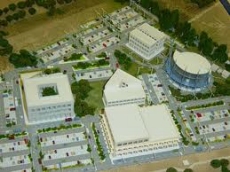 Am I the only one that is getting confused by the increasing number of initiatives that the government is rolling out to encourage entrepreneurship? Or frustrated because they don’t actually seem to make a difference?
Am I the only one that is getting confused by the increasing number of initiatives that the government is rolling out to encourage entrepreneurship? Or frustrated because they don’t actually seem to make a difference?
We had Business Link, then we didn’t, except it still exists as a “business advice and guidance service portal”.
The Small Firms Loan Guarantee scheme (SFLG) has been around for decades and continues to help companies that need a bank loan. Or it would if the banks fulfilled their part of the deal by releasing the funds.
To encourage them to do so the government set up Project Merlin last year whereby the banks agreed to lend £76B specifically to small firms. However it has been a failure and banks are still holding on to their money. Now Merlin looks like being dumped along with any credibility that the banks could have gained by making good on their promises.
For some time now we’ve had the Enterprise Investment Scheme (EIS) to encourage Investors, by giving them various tax breaks if they help to fund growing businesses.
In addition last year the Chancellor announced the Seed Enterprise Investment Scheme (SEIS) due to come into effect on the 6th April 2012. This is aimed at small start-ups and gives a 50% tax relief to Investors. I’ll do a write up of that shortly, but it looks promising in motivating Investors.
Enterprise Zones were introduced to mixed response and the jury is out on their long-term effectiveness.
The Government has pushed StartupBritain which they call “a national campaign by entrepreneurs for entrepreneurs, harnessing the expertise and passion of Britain’s leading businesspeople to celebrate, inspire and accelerate enterprise in the UK”. Fine words – but never-the-less just words.
Talking about fine words, recently the latest campaign is “There’s a business in you”, which provides inspiring stories and highlights support available. However most of the highlighted support simply takes you to the Business Link website.
Then there’s talk about cutting Red Tape. There is a “Red Tape Challenge”, where members of the public can suggest red tape to be cut and a “1 in, 1 out” idea that says if a department wants to bring in a piece of legislation, they must first remove one. Latest government news is that there have been 19 in and 33 out, saving small businesses £3.2 B a year. What shall we spend it on?
How about making tax simpler and easier to understand I hear you say. Well there’s a government office called “The office for Tax Simplification”. Yes there really is, let’s hope they are successful.
So is it all spin and gimmicks as some business experts have commented, or a well co-ordinated and ambitious campaign to release the entrepreneurial spirit in us all and make Britain great again?

 Enterprise Zones are the latest government incentive to get businesses growing. Within the Enterprise Zone you can get superfast broadband, lower rates & taxes, and low levels of regulation & planning controls.
Enterprise Zones are the latest government incentive to get businesses growing. Within the Enterprise Zone you can get superfast broadband, lower rates & taxes, and low levels of regulation & planning controls.